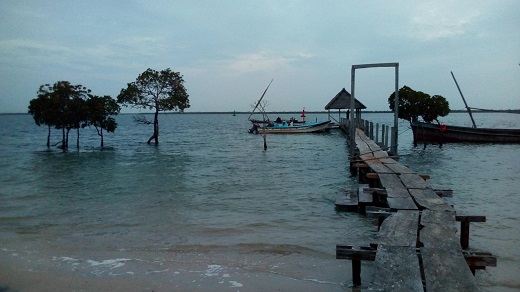Portable Islam: Swahili literary networks in the Indian Ocean
 In East Africa from the 1930s onwards, Islamic pocket literature encroached on the local Swahili Muslim oral culture and its longstanding manuscript tradition in Arabic script. At the same time, it found a niche amid the several incoming European Christian-produced materials.
In East Africa from the 1930s onwards, Islamic pocket literature encroached on the local Swahili Muslim oral culture and its longstanding manuscript tradition in Arabic script. At the same time, it found a niche amid the several incoming European Christian-produced materials.
This hitherto overlooked, yet remarkable corpus of booklets in Swahili verse, printed in Roman typescript on cheap paper from India, became very popular on the western coast of the Indian Ocean: these booklets made new notions of Islamic knowledge accessible beyond an Arabic speaking elite. These portable forms of print Islam were very much the product of transcontinental connections between Swahili authors and booksellers who belonged to an Islamic cosmopolis concerned with educating wider audiences.
Despite the evident importance of this corpus in shaping Islam across such a vast stretch of the world, the precise mechanisms by which these booklets were produced, spread and read - locally and overseas - have never been comprehensively studied. This project fills that gap, performing the first large-scale analysis of Swahili-language booklets produced in the first 70 years (1930-2000) and using a multimethod approach: material and network analysis will be combined with fieldwork and ethnographic research. Stacks of booklets in unique special collections in Leiden will be connected to located family-run bookshops and thinkers in East Africa to better understand the making of a transoceanic tradition of learning.
This transdisciplinary investigation of literary connections bypasses simplistic notions of a monolithic African Islam by looking at texts, their materiality and people as co-producers of a transregionally grounded intellectual history. The focus on materiality and transoceanic connections challenges not only the field of Islamic studies, but African, Indian Ocean and literary studies more broadly. Research on this pivotal 20th-century popular print medium also questions contemporary (mis)representations of inert Islamic traditions of learning in Western media and public debates.
This research takes place in the framework of an NWO Veni Talent Programme.
Senior researchers
Geographic
Keywords
Funding and cooperation
NWO-Talentprogramma Veni SGW 2021 - Cultuur en Taalwetenschappen/ NWO Talent Programme Veni SSH 2021 - Cultural Sciences and Linguistics

